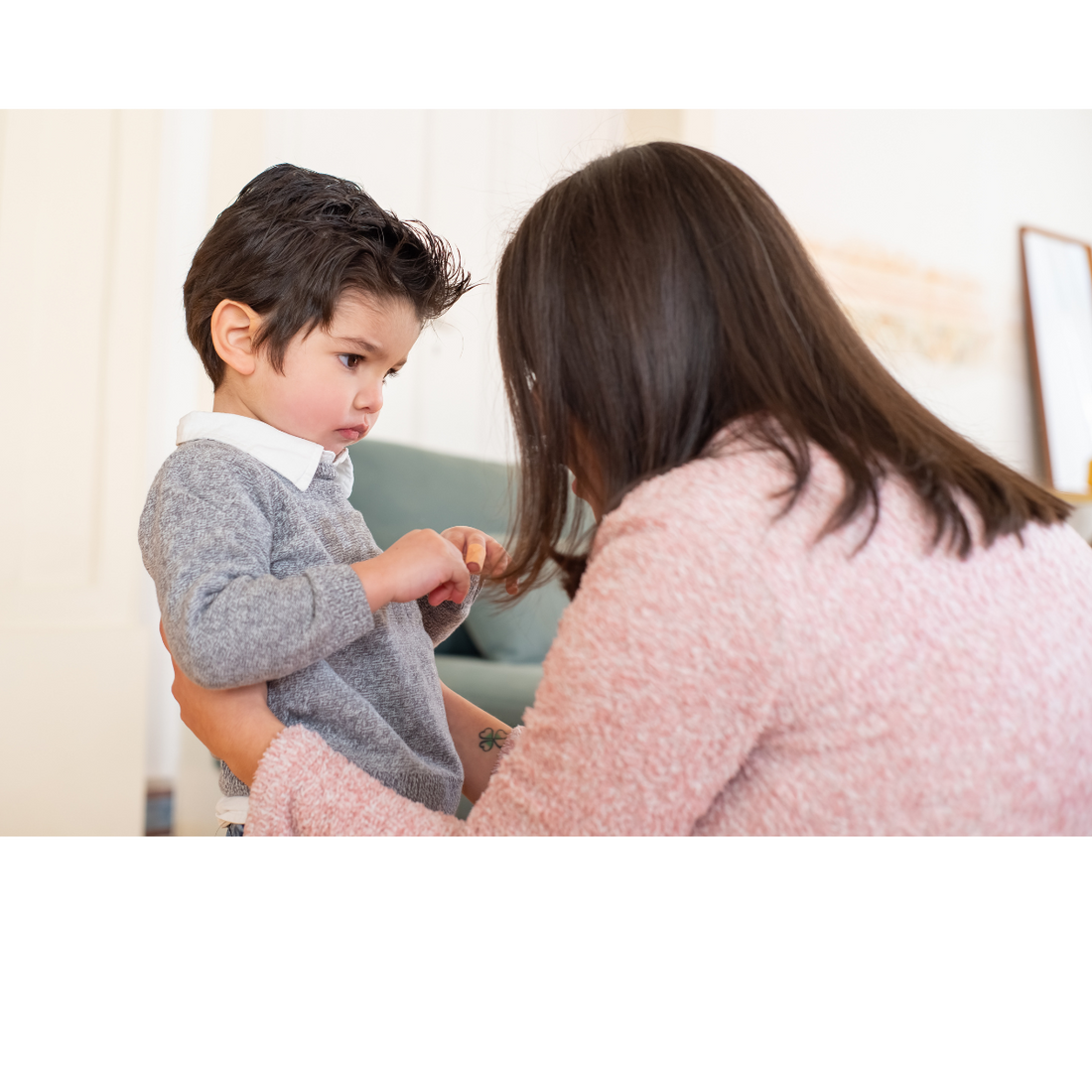
Simple Ways to Nurture Big Feelings
Share
As parents, you want your children to grow up happy, strong, and able to handle life’s ups and downs. One of the best gifts you can give your child is emotional intelligence. It is ability to recognize, express, and manage feelings. This skill helps children make friends, solve problems, and stay calm when things are difficult or uncomfortable (Alegre et al., 2019).You don’t need special training to build your child’s emotional intelligence.
Here are some easy, everyday ways you can use at home:
1. Name the Feelings
When your child is upset, help them find words for their feelings. You might say, 'It looks like you're really frustrated that the blocks fell over. That can be so annoying, huh?" Naming feelings helps children understand and talk about what’s inside (Denham et al., 2012).
2. Listen with Love
When your child wants to talk, give them your full attention. Just listen, without solving their problems for them. Nod, look at them, and say things like, “I hear you,” or “That sounds tough.” This shows your child their feelings matter.
3. Use Stories and Books
Reading picture books about emotions is a fun way to talk about feelings. Try books like The Color Monster by Anna Llenas. After reading, ask, “How did the character feel? What would you do?”
4. Play Emotion Games
Play “Feelings Charades,” where you and your child take turns acting out emotions like happy, angry, or scared. Guess the feeling together. This makes learning about emotions playful and safe (Alegre et al., 2019).
5. Pause and Breathe Together
When emotions run high, teach your child to stop and take a deep breath. You can count to three as you breathe in and out. This simple tool helps calm big feelings.
Remember, you are your child’s best teacher. Every small step matters. When you show love, listen with your full attention, and help your child recognize and name their emotions, you're building skills they will carry with them for life.
References
Alegre, A., Benito, M., & Lopes, D. (2019). The relationship between parental nurturing and children’s emotional intelligence. Journal of Family Studies, 25(2), 231–245. https://doi.org/10.1080/13229400.2017.1303156
Denham, S. A., Bassett, H. H., & Wyatt, T. (2012). The socialization of emotional competence. Emotion Review, 4(2), 151–159. https://doi.org/10.1177/1754073911430136
